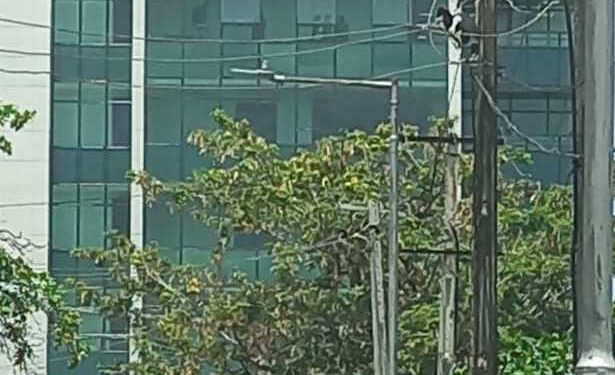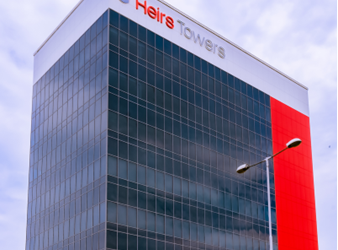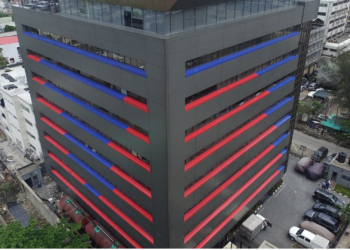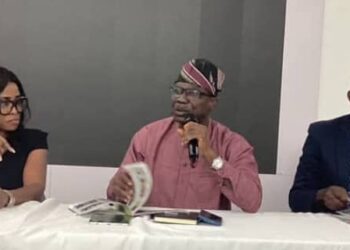Tope Adaramola writes… In a few days from now insurance operators, the crème of the professions and the general public would congregate on 42, Saka Tinubu Street, Victoria Island to formally unveil the magnificent office complex of the foremost Insurance Underwriters body in Nigeria-Nigerian Insurers Association (NIA).
To those who curiously observe the sprouting of the building from its foundation stage to completion, the edifice is without a doubt one of the finest buildings owned by any professional body in Nigeria. It stands as a solid optics for the solvency brand which the insurance industry is stridently craving for itself as a departure from the hangover of the battered image in the eyes of the public. Aside this, the seven story glass cladded building will enhance the already adorable skyline of the highbrow Victoria Island, where many notable blue chip companies are headquartered, to the betterment of the image and prestige of the insurance industry.
For watchers of history, the new building is coming as a replacement for the seemingly obsolete single floor building that housed the Association since 1998. The former building initially served as the residential apartment of the then popular Niger State born Shehu Musa, then Chairman of the National Population Commission (NPC).Having experienced all the theatrics that led to the Association securing the old building, the unveiling of the new edifice naturally propelled my recall of history as a first hand actor, being the second Public Relations Head of the NIA, to enrich the memory of readers and industry operators about the background to the building.
I actually resumed work with the NIA in April 1998 at 5, Customs Street, Marina, Lagos where Association was a tenant of the then National Insurance Corporation, under the youngish Alhaji Mohammed Kari. If my memory serves me right, the Governing Council of the Association was well studded with the likes of Professor Joe Irukwu , Mr A.A Akintunde, Prince Omosanya Akinyemi, Adewuyi Adetunji, baritone voiced Bolaji Banjo, a. k. a BOB; Godwin Alejuino, Ope Oredugba, James Ayo, Mazi Silvester Odenigwe et al. On the youthful divide were the likes of Late Tunji Ogunkannmi, Oye Hassan Odukale; Emannuel Oyetoyan; Alhaji Mohammed Kari, Bala Zakaryau. Fola Daniel, Nimbe Oviosu and Tope Smart, etal.
I personally found the Council quite interesting as their discussions on professional and buddies interests were expectedly intense. But behind the façade of comradeship it was obvious that there were benign “political differences” which were often maturely handled, except occasionally when it obviously threatened the fabrics of the existing camaraderie. By way of digression, one of such was the perceived truncation of the interest of Mohammed Kari to lead the NIA as Chairman. Being the biggest member of the Association that also contributed about 15 per cent of the annual subscription base of the Association, it was expected that Kari wanting to take the shot at the chairmanship of the Association was not unexpected. However, politics as it is often said is not mathematics! The permutation did not go for Kari as expectedly.
Part of the reasons we distilled was that the young Kari was quite vocal and the elders were not comfortable with what they believed was his radical disposition towards them and the status quo. As the election approached, Bolaji Banjo (BOB) was believed to have been propped to contest against Kari for the position. On the reason of company’s strength, Banjo who as the MD of the nano Fire Equity and General Insurance Company (FEGICO) was no match for Kari who sat over the octopus, called NICON Insurance Corporation as MD. Alas, Kari could only muster a more than a little support from a coterie of his friendship on the Board. BOB clinched the majority votes to become Chairman after A.A Akintunde.
Expected, Kari was not a person to take the issue as it came, he immediately convoked a press conference where he denounced the election, noting that it had been manipulated by some members who disliked him on on the Board. As a further reaction, Kari withdrew his membership of the Association as well as persuaded Niger Insurance, NICON’s subsidiary, under Bala Zakaryau to do same vide a terse letter to the Association. These developments posed existential challenge for the NIA, going by the fact that the two companies contributed a good chunk of the Associations subscription base. It took the selfless sacrifice of some members to buffer the financial loss of the Association.
It was cheering that after many years of being out of the fold, both companies returned to the membership of the Association. While the Association battled the threatening implosion, what appeared to be another shattering news started to smoulder, and it was that the funds accumulated by the Association for years under the Uninsured Motor Vehicle Accident victims, running to millions of naira, should be transferred to the newly formed National Insurance Commission (NAICOM). Prior to the NAICOM Decree of 1997, the NIA, taking a cue from the Association of British Insurers (ABI) had conceived the idea of levying members yearly under the uninsured motor vehicle accident victims to serve as a buffer as well as image spin for the industry in the event of any unfortunate accident involving uninsured motor vehicles.
The new NAICOM Act posited that the fund should henceforth be kept in custody of NAICOM. Apparently, due to the no love lost between NAICOM Commissioner under the ebullient Chief Oladipupo Bailey and NIA under Chief Funmi Adeyemi, Bailey insisted the money must be transferred to NAICOM for which the Association declined on the ground that the position of the law could not be enforced retroactively. The image of the industry suffered greatly in the eyes of the public as the two institutions turned to pages of the newspapers daily to ventilate their differing opinions.
Eventually, the Governing Board of the NIA urgently convened a meeting where it was decided unanimously that the money should be expended to purchase a property as secretariat for the Association. The ingenious idea prodded Chief Adeyemi’s committee to locate the residence of Shehu Musa from whom the building was purchased. In less than a week the secretariat staff, of which I was one, moved en-mass to the new secretariat, with many members heaving a sigh of relive from the challenges which they were already having at the NICON House, due to lingering intransigence between NICON and the Association.
As the public relation practitioner in the eyes of the storm it took time for me to understand reason for the push that I had from my boss who insisted I must get the then Governor of Lagos State, Colonel Buba Marwa to commission the building. Eventually we literally made a “noise” louder than the building on the D-day as the entire stretch of Saka Tinubu street was locked down. Unfortunately, Marwa, despite strident assurance to be physically present, could not make it. He had received a summon to be in Abuja. He was represented at the event by the then Commissioner for Finance, one Mr Wale Edun. As events later unfolded my boss told me that the NIA had to go that stretch because of the litigation which NAICOM was contemplating on the building. Adeyemi, being a seasoned lawyer had reasoned that the commissioning of the office by another top government official would nullify any alleged commission of illegality by the NIA with the use of the fund for the building.
Reasons eventually prevailed on both sides and NAICOM’s angst simmered over the issue on the day Chief Bailey visited the office. The mild drama that ensued that day is worth relating. Chief Adeyemi and Chairman, Banjo, had gone to welcome Chief Bailey to the new office. Seemingly ignoring the protocols, Chief Bailey did not pretend about his dislike for what NIA did. He blurted out “you guys bought this house willy- dilly and in defiance to the law? We shall see!.” Gladly, nothing happened afterwards, as the office remained the official abode of the Association till it was demolished to give way to the new one about to be commissioned.
While congratulating the present leadership, Council, and Secretariat staff of the NIA for this landmark feat, it should be noted that the building as it is today stands as a testimonial of diligence and tenacity of purpose of those who conceived the initial idea of purchasing a building, albeit based on the circumstances of the time. Gladly, some of them are still alive and kicking, while some others have regretfully exited the world. It is hoped that they would all be given their deserved place in the “hall of fame” in the building to immortalize their efforts of giving not only the NIA, but the entire insurance industry such a befitting legacy of honour, dignity and good image.
Tope Adaramola is the Executive Secretary/CEO, the Nigerian Council of Registered Insurance Brokers (NCRIB)









































